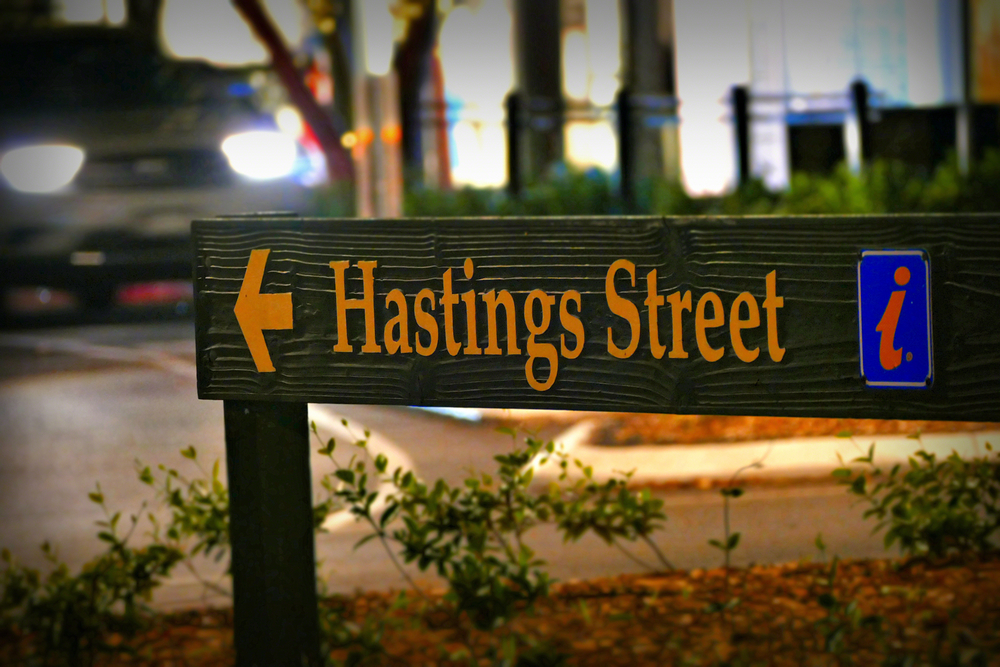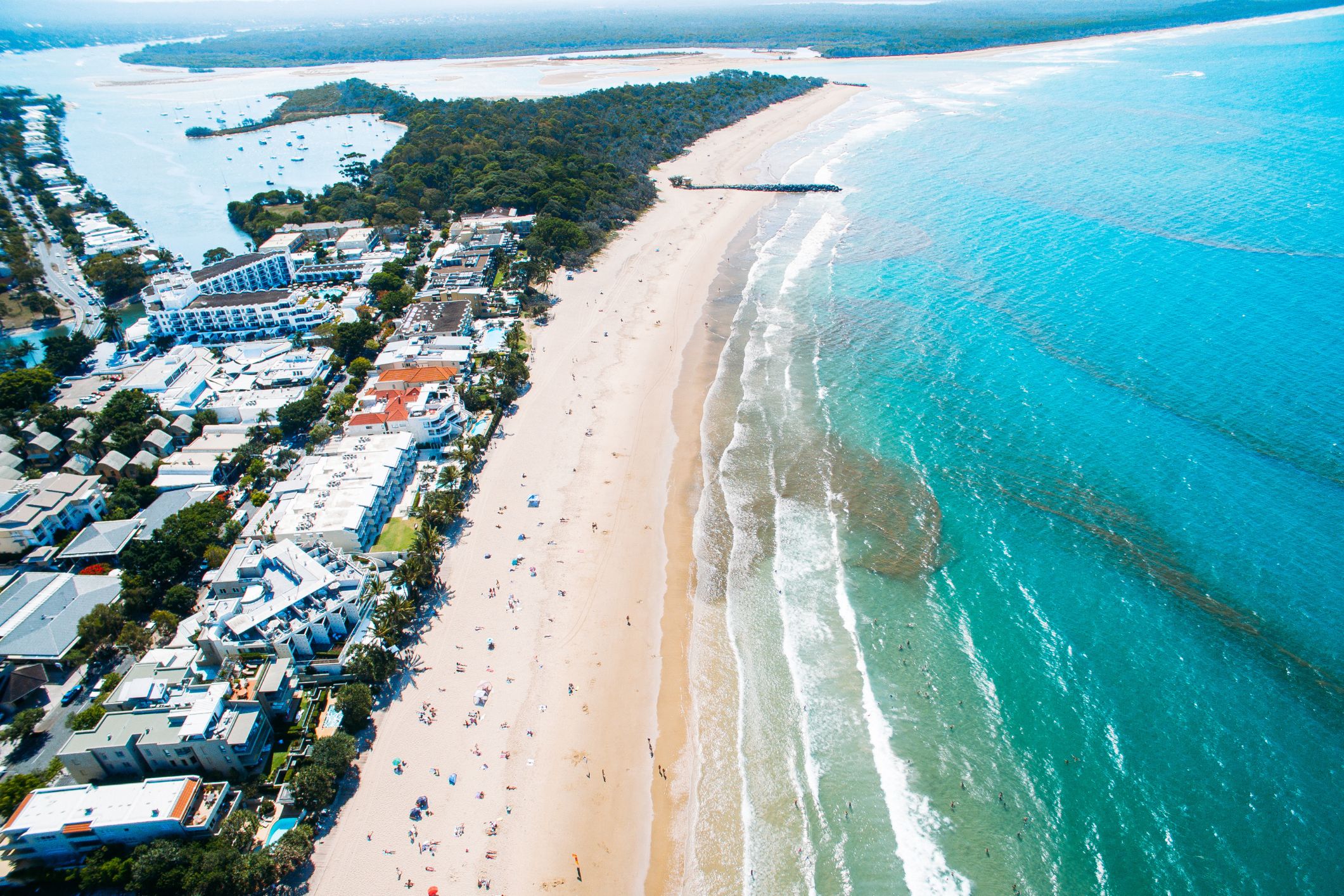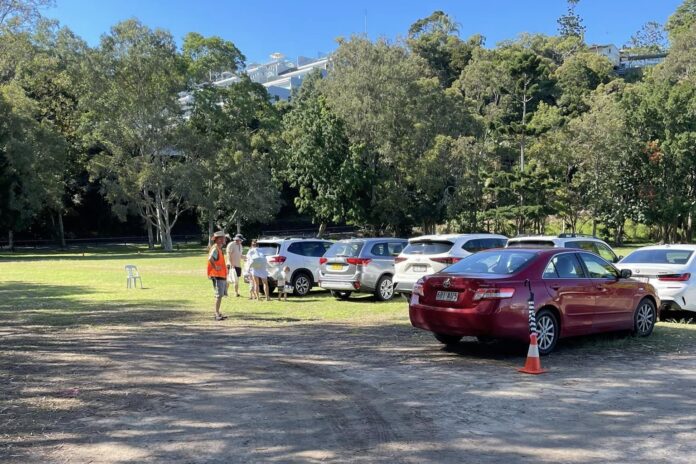A community parking initiative to tackle congestion in one of the region’s tourist hotspots could be set to end.
For more than 20 years, a greenspace in Noosa Heads has been transformed into a makeshift paid car park during peak holiday periods to deal with the high volume of visitors.
The additional 200 spaces in the Noosa Heads Lions Park provide some relief to the heavy traffic that passes through the Hastings Street precinct during those times.
Run by volunteers from the Tewantin-Noosa Lions Club, the overflow parking has historically operated over the Christmas and Easter school holidays.
In September 2020 the use of the park for car parking was expanded to include all Queensland school holidays and long weekends for the duration of the pandemic.
The Lions Club has operated the temporary car park from 8.30am to 5.30pm on the designated days subject to weather, and vehicles are charged a flat rate of $20 per day.
Currently 50 per cent of profits go to the Lions Club to fund community projects, including the recent installation of an all-abilities beach mat at Noosa Main Beach, while the reminder goes to the council’s Go Noosa transport initiative and maintenance of the park.
Since Christmas 2018, 42,291 cars have parked at the Lions Park, generating $845,820 in revenue.
The patronage and revenue has increased significantly in that period, with a record 7293 cars using the car park in 27 days across Christmas 2022-23.
A recommendation was presented to Noosa Council to extend the parking at the Noosa Heads Lions Park until May 6, 2024.

It was recommended that council approve a 12-month extension to allow for community engagement on the use of the park for car parking through the proposed Destination Management Plan.
But a decision at its March 16 Ordinary Meeting will instead see council seek state government approval to provide paid parking in Noosa Heads Lions Park only during the upcoming Easter and Christmas holidays.
Deputy Mayor Frank Wilkie said the park’s continued use for parking beyond 2023 would then be put to the community for feedback.
This is because use of the Noosa Heads Lions Park for car parking was contrary to the Department of Resources park designation, the Noosa Plan scheme, the Noosa Transport Strategy and the Noosa Design Principles.
Cr Wilkie said the 2020 approval to operate during Queensland school and public holidays was to encourage drive tourism during the COVID-19 public health declaration.
“It was not intended to be an ongoing arrangement and now the Queensland public health declaration has ended and travel restrictions have lifted, we no longer need to encourage the drive market,” he said.
He said the car park also encouraged visitors to drive to the precinct, rather than opt for other transport solutions.

“With 14,000 vehicles accessing the Hastings Street precinct during peak periods, the 150 to 200 spaces offered in Lions Park don’t significantly improve supply or demand but do provide an incentive for motorists to enter the precinct, which increases congestion,” he said.
“Since the pandemic began, we’ve also launched the free weekend bus trial to move people around – including in and out of the Hastings Street precinct – to help reduce traffic congestion and parking demand.
“The ongoing use of this public green space for parking is something the community should rightly be given an opportunity to have a say on.”
The Lions Club will continue to manage paid parking in the park this Easter and Christmas and collect 50 per cent of the income.
“The Lions Park paid car parking has been a welcome source of income for the Lions Club and council will support them to review pricing arrangements and find alternative fundraising opportunities to offset downturns in revenue,” Cr Wilkie said.
The Noosa Heads Lions Park was set aside as a reserve for recreation in 1982 following a land reclamation scheme.
The one-hectare reserve is owned by the state government’s Department of Resources, with Noosa Council as public trustee in control of the site.
Do you have an opinion to share? Submit a Letter to the Editor at Sunshine Coast News via: news@sunshinecoastnews.com.au. You must include your name and suburb.





